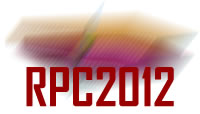Speaker
Prof.
Vladimir Peskov
(CERN)
Description
After a long and fruitful “wire detectors era” two major breakthroughs happened in the field of gaseous detectors: the development of RPCs and the invention of micropattern detectors. Nowadays RPCs are widely used in many experiments and the latest achievements are highlighted in the talks presented at this workshop. The main attraction of the micropattern detectors is that they are manufactured by a microelectronic technology that offers high granularity and thus unprecedented position resolution. However, as a consequence of their fine electrode structure these detectors are very fragile and for example, could easily be damaged by sparks. The recently suggested resistive electrode approach makes them robust and spark-protected and gives a new momentum in their developments and applications. These innovative detectors are actually hybrids between RPCs and the “classical” micropattern detectors with metallic electrodes (GEM, MICROMEGAS, microstrip, microdot, micropin and so on).
The aim of this presentation is to shortly highlight the latest achievements in the fields of RPC detectors and resistive electrode micropattern detectors as well as focus on the challenges these detectors should be meeting in the coming years. Examples could be: new and difficult requirements from experiments and applications, optimization and improvements of the existing detector designs (gas, gas systems, electronics), improvement of their characteristics (timing /rate performance, aging, dark current, etc), investigation of new materials, development of large-area detections and much more. A discussion of all of these issues with the conference participants is expected after the presentation in order to formulate together what should be done in hardware and software technologies in order to meet these challenges.
Author
Prof.
Vladimir Peskov
(CERN)

